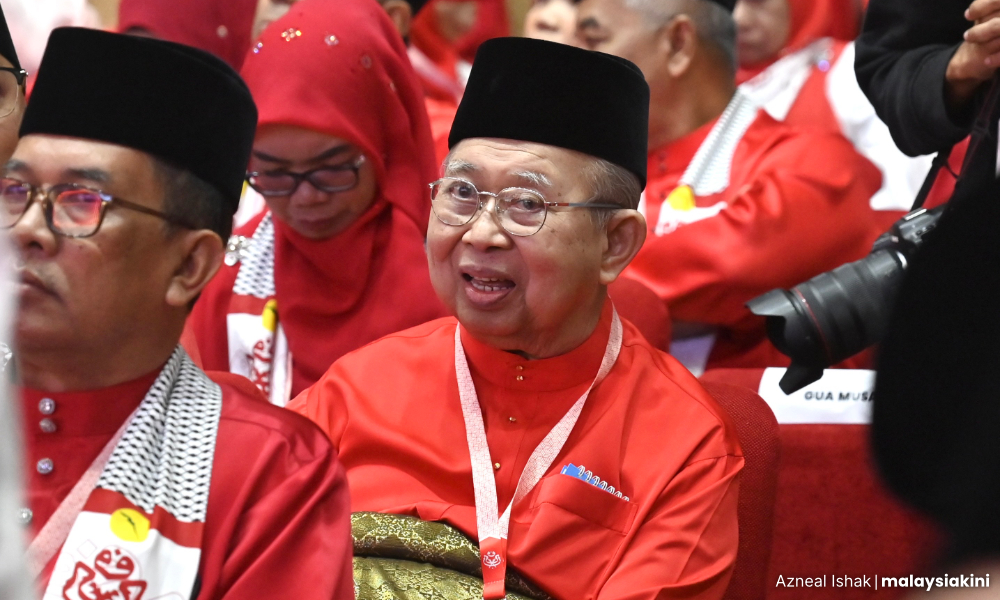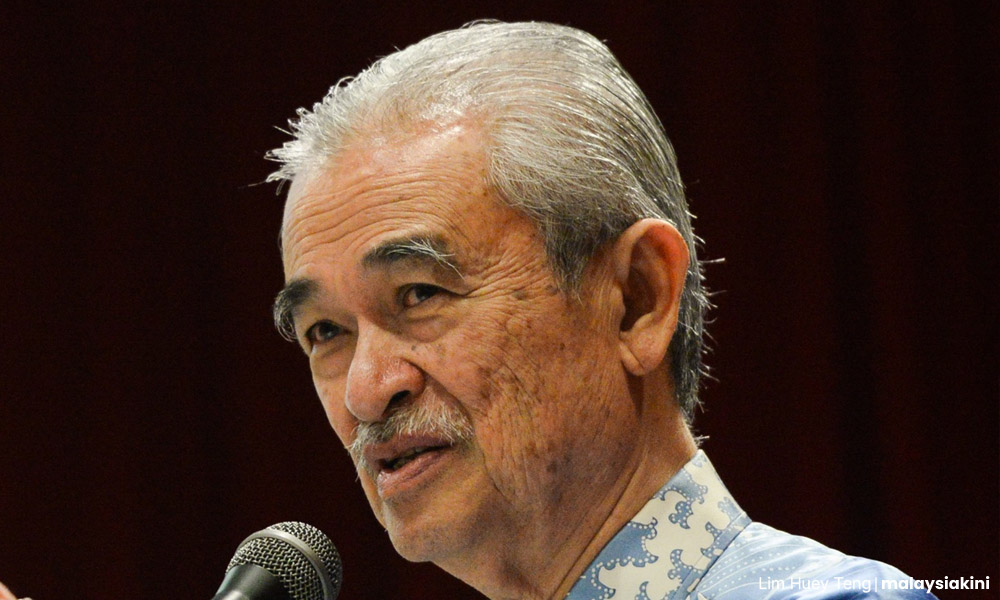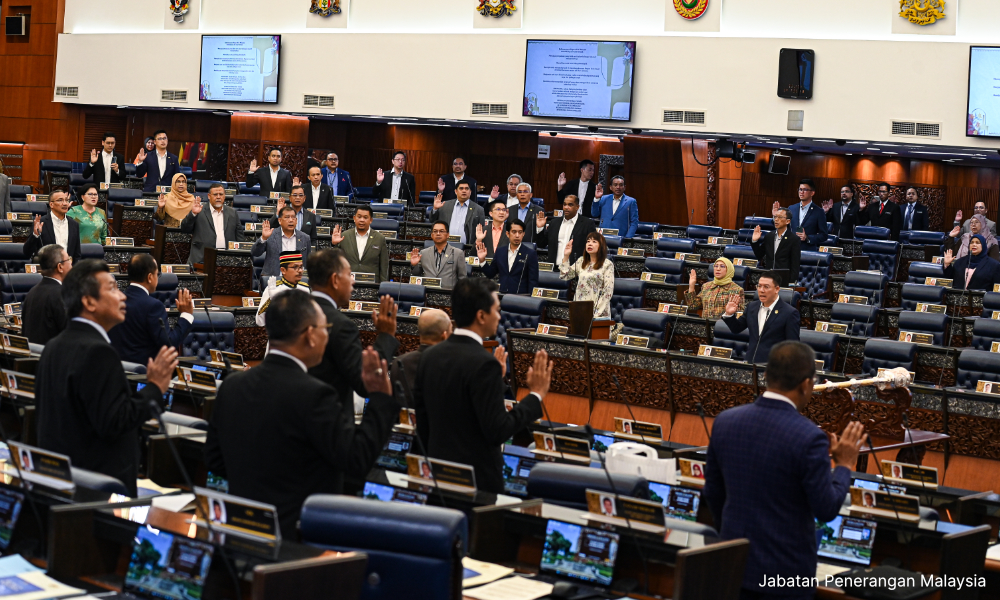Former MP and finance minister Tengku Razaleigh Hamzah’s spirited defence of Umno Youth chief Dr Muhamad Akmal Saleh raises an important question.
Is there not a thick, broad line between insolent words/coarse language and party interests?
On Monday, Ku Li stressed that Akmal’s assertive stance should not be mistaken for hostility towards other races but rather as being in line with Umno’s constitution and mission.
However, there is a big difference between hostility towards other races and being personal and spiteful.
Indeed, the party constitution does not state that leaders must be rude and uncouth when commenting on views contrary to their own.
His response to Johor DAP committee member Dr Boo Cheng Hau, who urged Akmal to apologise to Seputeh MP Teresa Kok and all Malaysians over his remarks amid the halal certification spat, came as ridiculous more than a surprise.

“Why should he (Akmal) apologise? I believe this is a sincere opinion from our youth chief. He is expressing his feelings, and it is not about whether the halal certification is valid or not, but about his dissatisfaction.
“In my view, just because our leaders, be it Akmal or anyone else, express their thoughts, it does not mean we have negative feelings or are looking to oppose anyone,” Sinar Harian quoted Ku Li as saying.
But then, does this give one the right to use such audacious and imprudent words to express such feelings?
Do common sense and etiquette disappear when you put forward your or your party’s views?
Does the term “Nyonya tua” (old Nyonya) and other derogatory terms fit into Umno’s constitution and mission?
In his final speech at the Umno general assembly in 2009, former prime minister Abdullah Ahmad Badawi warned that Umno had become arrogant and faced inevitable demise unless it changed.

Several Umno leaders have spoken about the need for the party to change after the debacle in the 2018 hustings, but have there been significant changes?
Public perception of Umno
What does Joe Public think of Akmal’s comments that he would urge the government to create a non-halal logo to stick on Kok’s forehead? Was it necessary, or was it practical?
Over the past few days, component parties in the government were trying to do “damage control” because of the Mahkota by-election.
What message did Akmal send by posting a picture brandishing a sword on social media? Was it part of Umno’s mission? What did he or the party aim to achieve?
Such negative actions and words do not augur well for how Umno, as part of the federal government, is perceived.
Was this behaviour passed down the line or adopted from the conduct of MPs in Parliament?
Not too long ago, the dreaded four-letter word and a supporting gesture with hands were heard and seen in the august house.
In a previous column, I wrote: “If previously, it was one MP making derogatory remarks on women or making racist remarks, both of which were unparliamentary, this time around, the collective loud voices made what was supposed to be a healthy debate into a farce.

“Instead of supposedly wise owls, the chambers became the venue for a shouting match with the speaker’s patience being tested and eventually ordering the Putrajaya MP out of the house with the rest of the opposition walking out in support.”
Degradation of respect
The archives of past Parliament sessions reveal how MPs treated each other with respect and reverence as fellow lawmakers.
Despite the “heavyweights” on the opposition benches – Dr Tan Chee Khoon, the Seenivasagam brothers, Lim Kean Siew, Devan Nair, and Lee Kuan Yew, the debates and exchanges were civil.
The archives provide anecdotal evidence of the proceedings in those years.
The Alliance front bench was equally vocal, but they agreed to disagree. There was no name-calling, and no one was referred to the select committee for severe breaches of the standing orders.
How and why did such degradation take place? Were the wrong people elected, or was it a case of entitlement?
It is just an issue that is not restricted to Akmal. Others disrupt debates, use unparliamentary language, and get personal in their attacks.
Have the second- and third-line leaders in the party hierarchy picked up the bad traits of their leaders in Parliament, or have leaders lost control over those in the lower echelon of the party?
Or have selected members been given a licence to “attack” those who disagree with them?
Are there members who have been “pushed forward” as the party’s voice, and subsequently, those views are denied as being those of the party, and are then disavowed when those issues turn to controversies?
Or have values been downgraded for selfish purposes – materialistic gains and trophy wives? - Mkini
R NADESWARAN is a veteran journalist who writes on bread-and-butter issues.
The views expressed here are those of the author/contributor and do not necessarily represent the views of MMKtT.




No comments:
Post a Comment
Note: Only a member of this blog may post a comment.